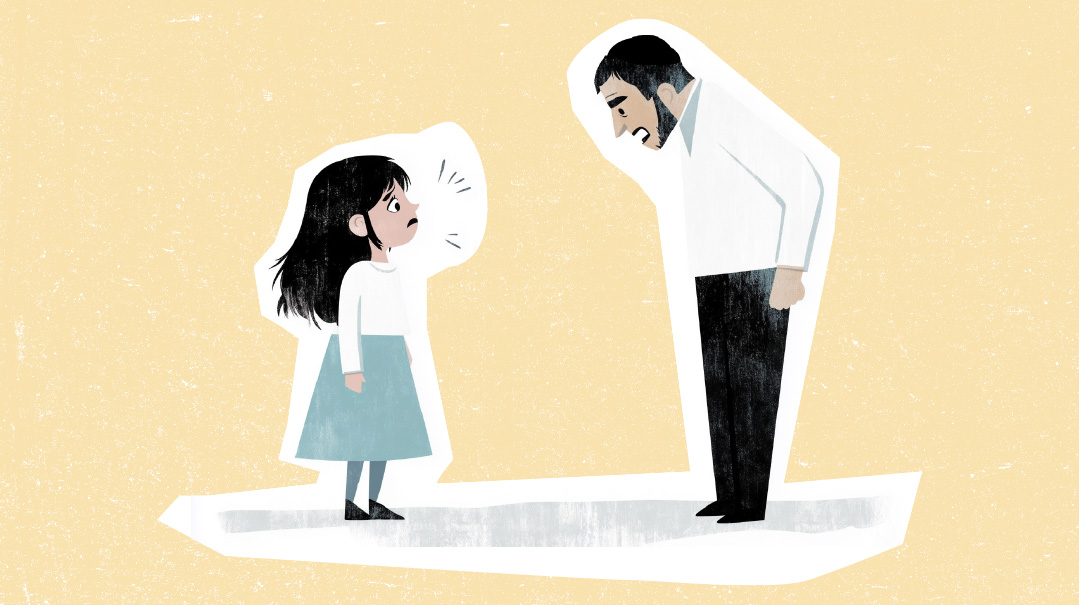“How Can I Keep My Mental State from Affecting My Baby in Utero?”

Let’s just consider the possibility that a mother’s negative emotions may not be completely contraindicated in pregnancy

Q
I’ve heard that a mother’s emotions and mental state can affect her baby in utero. I’m wondering if there are techniques a pregnant woman can use when dealing with anxiety, stress, or mood swings to keep her baby’s environment as healthy as possible.
A
It’s a great idea to keep our baby’s environment as healthy as possible — before, during, and after birth! In fact, we’d think that raising a baby, toddler, child, or teen in a stress-free environment would be the most ideal option.
Apparently, however, Hashem thinks otherwise. He is the One Who creates situations that people find challenging, stressful and even traumatizing — and He doesn’t put this on hold during the childbearing years. Of course, it’s up to each person to reduce their stress levels by increasing emunah and bitachon, but this takes a lifetime of work. In general, those in the childbearing years are still in the early stages of spiritual mastery and therefore still do feel significant amounts of stress.
Therefore, before we explore strategies for increasing emotional stability and well-being, let’s just consider the possibility that a mother’s negative emotions may not be completely contraindicated in pregnancy. It’s even possible that her sadness, despair, fear, and rage actually inoculate her baby, building up a sort of stress resistance over time.
To better understand this concept, let’s consider the practice of conditioning a baby to fall asleep in a bright and noisy room. If the baby is successfully trained to sleep under these conditions, the child will be able to fall asleep anywhere, at any time. Another baby, put to sleep only where conditions are ideal (dark and quiet) may not be able to settle down in an environment that isn’t “just right.”
In this example, would we say that the over-stimulating environment was harmful to the baby? No. On the contrary, it actually strengthened and increased the child’s flexibility. In a similar way, it might be beneficial to be exposed to some stress chemistry and energy, learn to tolerate it, go with it — and ultimately ignore its disruptive effects and carry on. Excessive protection from stress might produce a situation in which even small amounts of stress are perceived as intolerable and overwhelming. Receiving a poor grade on a test, for instance, may be more than one can bear if one has only been exposed to praise, success, and positive feedback.
None of this is to say that we should feel free to rage, worry, and cry throughout our pregnancies. It is only to say that if you find yourself unable to feel peaceful, joyful, and content at all times, don’t despair. For all we know, it may be good for the baby to be exposed to our stress chemistry to some extent. It’s likely also beneficial for a child to be exposed to our stress throughout the developmental years if only to learn from our model how one experiences and deals effectively with the difficulties that life inevitably presents.
Nonetheless, we do know that excessive and/or poorly managed stress can lead to negative emotional and physical outcomes. Indeed, the possible benefits of exposure to stress discussed above refers to the normal, fluctuating stress levels that everyone experiences. Chronic, intense stress, on the other hand, takes a toll that has been clearly documented. This sort of stress may indeed have negative consequences during the vulnerable period of gestation; it has certainly been shown to produce serious negative consequences when experienced during the developmental years.
The question becomes, therefore, not, “How do I remove all stress during pregnancy?” but rather, “How do I avoid unhealthy levels of stress during pregnancy?”
First acknowledge, name, and accept all emotions as they arise: frustration, irritation, hostility, anxiety, boredom, loneliness, and so on. Simply think to yourself something like, “I’m grumpy right now,” or, “I’m feeling anxious right now.” In addition, writing (journaling) or speaking about your troubled feelings (to the right listener) can help release them.
Second, maintain a gratitude journal. Even in our darkest times, the kindness of Hashem is with us, and, when consciously acknowledged, can sustain us.
Third, use add-ins: Add positive energy boosters to each and every day. Activities such as socialization, exercise, music, creative hobbies, pleasurable reading, relaxation, and so on not only give you a short break from stress but also reduce your overall stress chemistry, boosting your mood, resilience, and positivity.
Finally, handle the bigger issues and more overwhelming feelings with the help of a licensed mental health professional.
(Originally featured in Family First, Issue 859)
Oops! We could not locate your form.





